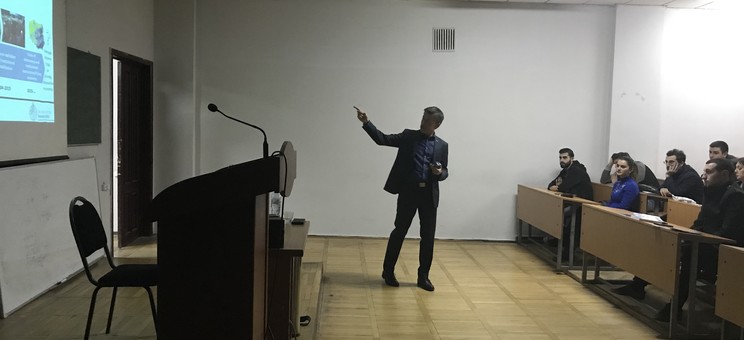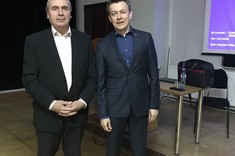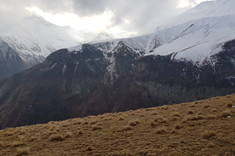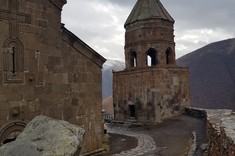The Erasmus+ programme owing to its universality is one of the best incentives supporting international mobility in counties like Poland. Lately I got the chance to visit the Ivane Javakhishvili Tbilisi State University in Tbilisi, Georgia under the Erasmus+ project KA107 with partner countries. It’s been few weeks now since my visit thus I can relate to it objectively. Once an advertisement of a travel agency said “Georgia – easy to fly to, hard to leave” and I could finish my recollection on that sentence but the question remains: why hard to leave? There are few reasons for that and they do not have connection with the transportation obstacles. First of all Georgia is a beautiful country offering both harsh Caucasus scenery – totally distinct from our “tamed” Tatra Mountains or the Alps, as well as beautiful beaches of the Black Sea, interesting cities like fun-loving Batumi or traditional and august Tbilisi. Secondly, it is the country of fascinating cuisine starting with chaczapuri, chinkali through assortment of cheeses, grilled meat, vegetable pastes with nuts ending with different varieties of wines.
My visit at the partner university allowed me to verify my role as an academic teacher in new circumstances. During the classes I was amazed by the huge interest in the matters of the European Union the students demonstrated. The aspiration to western world seems to be not only the feature of young generation but its observable in elder generation as well. The reason for it might be found in current geopolitical system, growing political tensions in the region and imperialistic inclinations of the northern neighbour. The Erasmus+ programme is absolutely a very good tool to understand Georgia’s complex situation. I hope that the time comes when the dream of Georgians to join NATO and the European Union becomes a fact. The society is ready. Young people freely speak English while classes or everyday life situations thus the level of language knowledge can be compared to the one we have in Poland. The situation is similar when it comes to academic staff although except for English they speak Russian fluently and thanks to economic cooperation and scientific exchange German is also popular. The cooperation directions at the Faculty of Economics and Business are mainly management, macroeconomics, international cooperation, tourism, and quantitative methods hence convergent with the Faculty of Management’s activity. Owing to that it creates a good base for joint research projects, publications, conferences and hopefully growth in the number of students exchange.
To end my short column I would like to express my deep gratitude to all the people engaged in my visit and to thank for positive reception, the words of appreciation, attention and hospitality. I address these thanks to the Dean of the Faculty of Economics and Business prof. Teimuraz Beridze, Deputy Dean prof. Nino Paresashvili, Head of the Statistics Department prof. Simon Gelashvili, Head of the Tourism Department prof. Joseph Khelashvili, and fellow teachers Nino Lobzhanidze, PhD, Akaki Mikaberidze, PhD. I eagerly await the re-visit of the faculty’s representatives at our university.
Jacek Strojny, PhD











